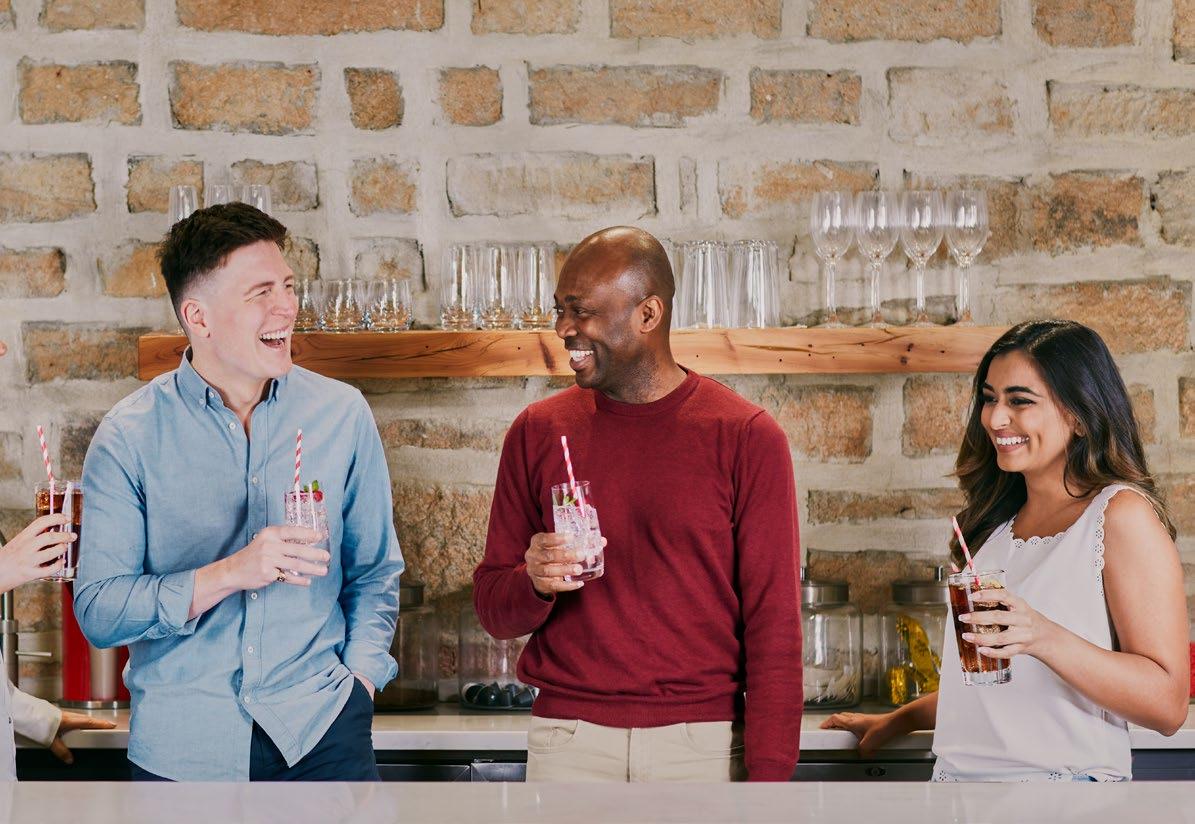The planet is better with more fizz.



Sustainability is a huge concept, encompassing global warming and pollution, the use of resources, ethical sourcing, public health, and much more. CSD manufacturers and distributors face a number of tricky challenges.
Carbonated soft drink (CSD) manufacturers are concerned with their industry’s sustainability and are already working hard on a range of initiatives – including the reduction of carbondioxide (CO₂) emissions, waste water, energy consumption, transportation and packaging (especially plastics), harmful farming practices, sugar consumption, and air and water pollution, among other issues. They also know that market share is at risk, because consumers want to see progress on sustainability.
"People are waking up to the connection between our food system and the health of the environment. And many are looking to support companies and products that align with their values." 1
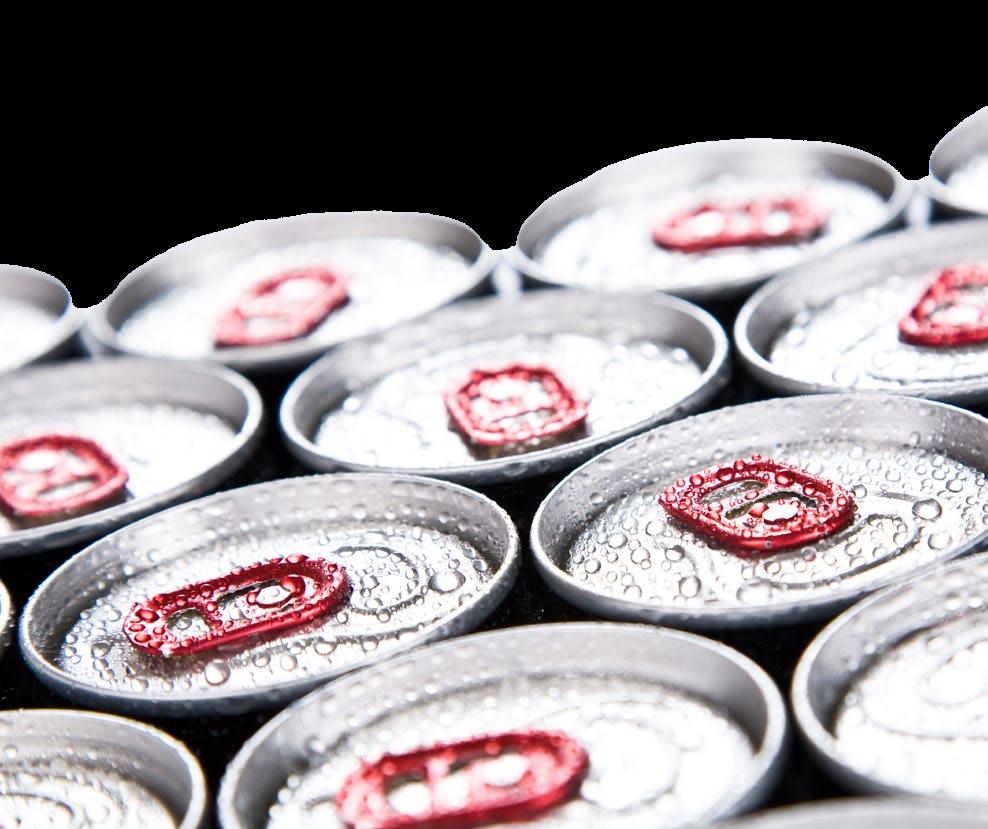
The ability to attract and retain talent is equally at risk. A Deloitte survey found that 80% of executives said their employees were very concerned about climate change. 45% of millennial employees would seek to change jobs if their company did not implement sustainable business practices, and 30% of US employees from large organisations said they had left a job because of the absence of a sustainability plan.2
And funding is at risk, with growing pressure from investors. Two-thirds of European CFOs say their shareholders and investors are demanding action on climate change,3 and over 700 investors – representing over $68 trillion in assets – have signed the Climate Action 100+ initiative to demand that corporate greenhouse-gas emitters take public action on climate change.4
It is not all bad news for CSD manufacturers. A 2022 report from Oxford University stated that beverages composed primarily of water had the lowest environmental impact our of 57,000 supermarket food and beverage products in the UK.5 However, manufacturers know there is significant work to be done.
"Sustainability is a key issue for the soft drinks industry. Innovations in packaging, efficiencies in transport and savings in energy and water use in the production of soft drinks have enabled us to reduce our environmental impact, but we want to go further." 6
- British Soft Drinks Association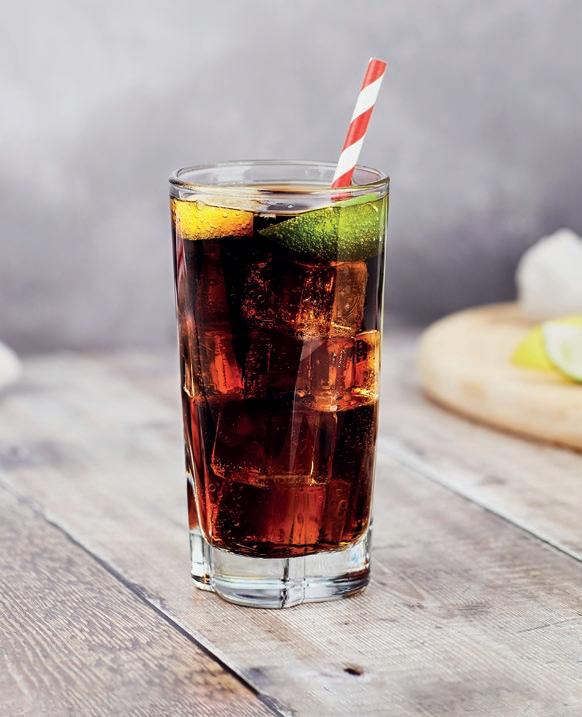
Adding CO2Sustain to a fizzy drink is a simple, minimal-risk step which can deliver a wide range of impressive sustainability benefits for CSD manufacturers
CO₂Sustain is a liquid additive which creates impressive improvements in consumer enjoyment and production efficiency – and which even enhances sustainability.
Known as ingredient 436/E436, CO₂Sustain is a patented additive for CSDs which improves carbonation. As an ultra-fine dispersion of polysorbate 65 in water, it is a pasteurised non-ionic surfactant.
CO₂Sustain is added directly to concentrated syrup. This requires minimal stirring and no heating is required. The optimum dosage is just 0.1g/litre, with only minor variations per CSD formulation (and dosages are easy to calculate).
This means that switching to CO₂Sustain is rapid and straightforward.
The product has global regulatory approvals including EFSA, CODEX and GRAS.
CO₂Sustain increases carbonation and reduces fobbing during the two occasions when CO₂ saturation levels within the liquid are at their most vulnerable: the filling of containers during production, and opening/pouring by the consumer.
CO₂Sustain encapsulates each bubble of CO₂ as it forms. The effect of this encapsulation is to reduce the size of and strengthen the bubbles and to ensure that they then remain small. Smaller bubbles are more soluble (thus the overall effect is to enhance the solubility of CO₂ in the liquid), and they are slower to rise to the surface, reducing fobbing.
Encapsulation also causes bubbles to bounce off one another, rather than merging, which reduces foaming and retains more bubbles in the liquid. The net effect is a fizzier drink which remains fizzier for longer.
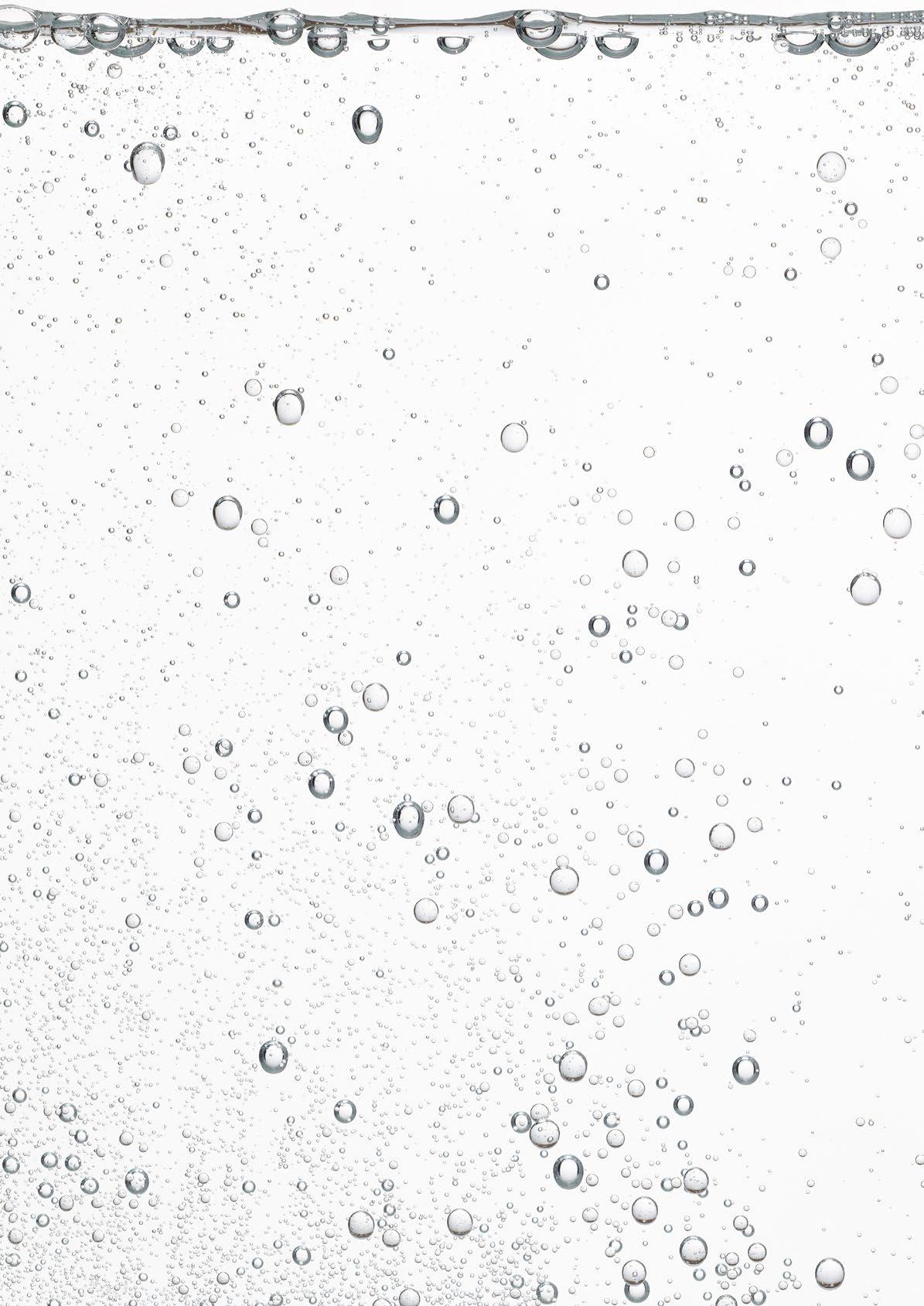
Which beverages can take CO₂Sustain?
The additive can be used with any carbonated soft drink formula, whether sweetened with sugar or stevia, or artificially. This includes flavoured waters. It can be added to cans, glass bottles and PET bottles, and also to syrups for post-mix dispensing.
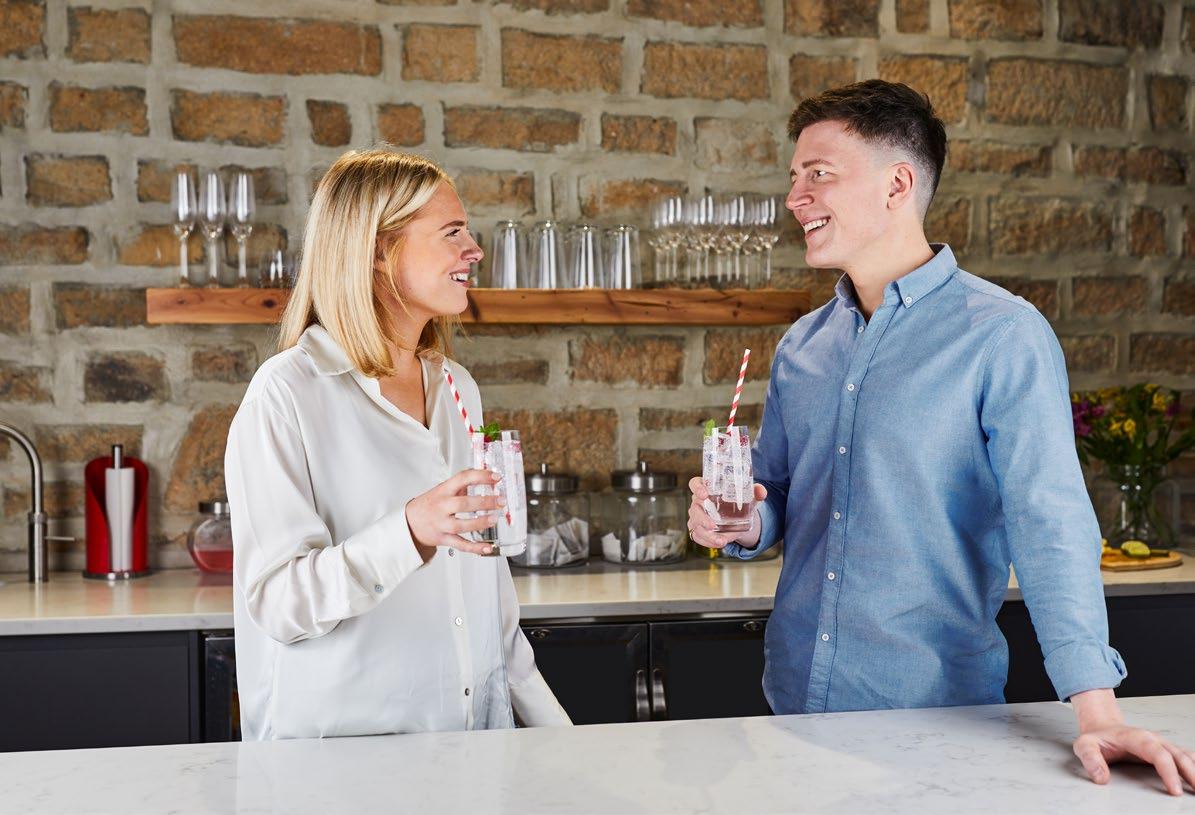
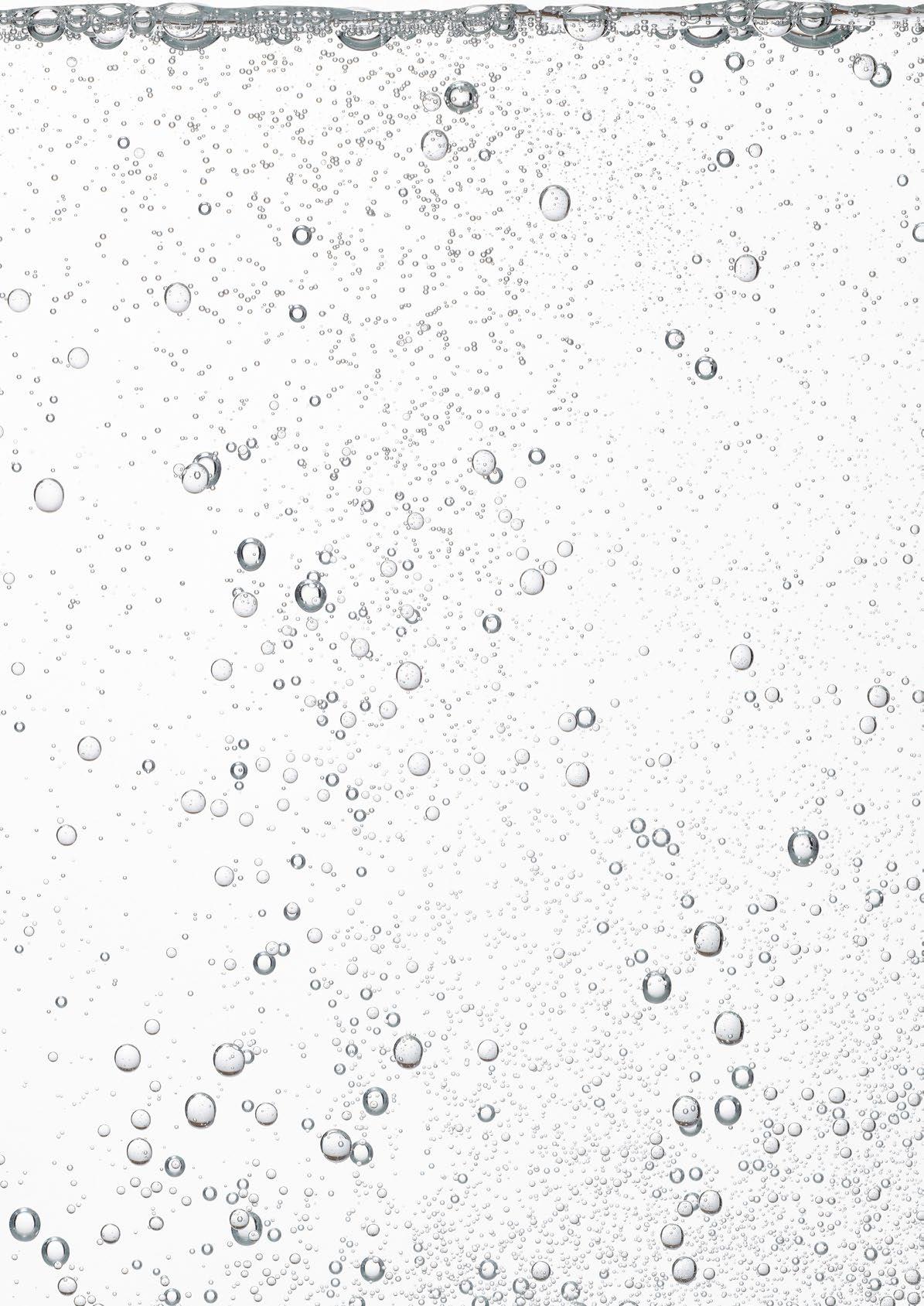
What are the sustainability benefits of CO₂Sustain?
→
→
and more
fewer
CO₂Sustain enables CSD manufacturers to optimise the amount of PET used in bottling, helping to mitigate a variety of negative impacts on the environment.
The sustainability of all CSD packaging is a complex subject, ranging from its manufacture and transport to its potential effects on health and its eventual disposal and ‘pollutability’. And public concern is growing: 74% of consumers would be willing to pay more for sustainable food and beverage packaging 7 . Newspapers are calling out CSD manufacturers for the “massive plastic pollution footprint of drinks firms.” 8
70% of soft drinks are now sold in polyethylene terephthalate (PET) plastic bottles; they are lightweight, costeffective, resealable, recyclable, and are often made from recycled plastic.
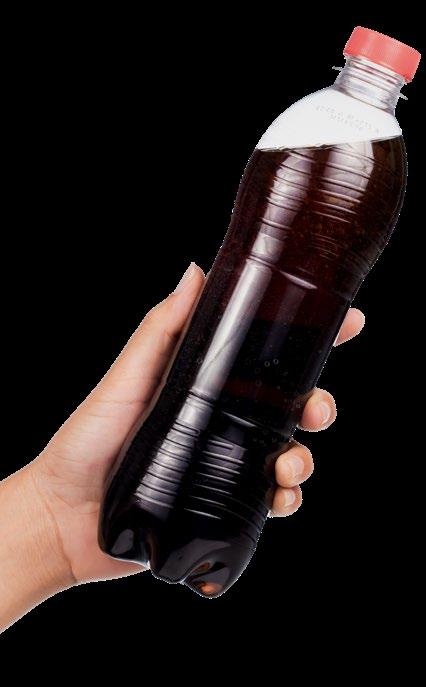
However, the beverage industry uses 20 million barrels of oil each year just to manufacture plastic bottles – so the slightest change in the way we package could have a massive impact. PET bottles are not biodegradable, are not sufficiently recycled, and can only be recycled a limited number of times.
They present a littering challenge and, according to the non-profit foundation Oceania: “Beverage companies are major ocean polluters and are producing billions of plastic bottles every year that end up in the sea, essentially forever.” Oceania say that plastic bottles are the most commonly found plastic items in beach clean-ups, worldwide, by weight. 9
While manufacturers are keen to cut their PET usage, they are confronted by production challenges. The headspace in a PET bottle, between the surface of the liquid and the cap, is a weak point from which CO₂ under pressure will inevitably seep, reducing consumer enjoyment and shortening the shelf life of the beverage. Using lower weight PET will accelerate the rate of CO₂ loss and weaken the bottle.
Additionally, the comparatively rough surface of PET (versus a can or a glass bottle) causes unwanted foaming and further CO₂ loss. This rapid loss of carbonation is particularly problematic when producing and distributing in hot climates – where PET-bottled drinks are in highest demand.
All of this means that while a CSD distributed in a can or glass bottle typically contains 7.5g of CO₂ per litre, a PET bottle will require 8g of CO₂ to allow for loss – a significant waste of 6.6% of the CO₂ at a time of global CO₂ shortages.
CSDs with or without added CO₂Sustain will experience CO₂ seepage – but a poured drink containing CO₂Sustain will stay fizzier for longer.
This mitigates the negative effects of lightweighed PET, allowing manufacturers to switch to a lighter plastic without compromising on (or even potentially improving) the consumer experience.
Manufacturers can cut the CO₂ in their CSDs by 1g per litre with no noticeable effect, extending the carbonation shelf life of the beverage.
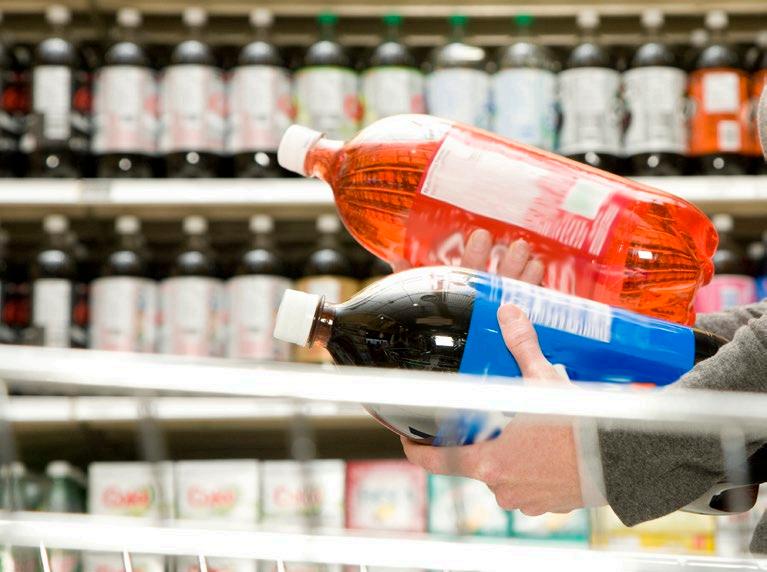
→ Enables CSD manufacturers to use around 12.5% less CO₂ without affecting the consumer experience
→ Reduces the amount of PET required to make CSD bottles
→ Reduces the amount of fossil fuels and energy required to meet PET demands
→ Reduced usage of CO₂ and PET leads to lower transport costs
of the world’s oil production is used to make plastics and that plastic production is expected to account for 15% of global greenhouse gas emissions by 2050 if consumption trends continue."
The seepage of CO₂ from PET bottles reduces the shelf life of CSDs, which also means that only limited stocks can be built up ahead of periods of peak demand. CO₂Sustain can significantly extend that carbonation shelf life, providing a more sustainable solution.
The vast majority of beverage formulations sold in PET bottles have a long shelf life, probably running into years. Unfortunately, the same cannot be said for the CO₂ in those bottles, which has a significantly shorter shelf life before the CSD’s carbonation reduces to the point of unacceptability.
Overall, therefore, the typical CSD has a carbonation shelf life of between 3 and 4 months – a little longer in cold countries, and shorter in hot countries where the seepage will be faster.
This means that manufacturers are limited by how much of their beverage they can produce and store in advance – leading to production and logistical problems at times of peak demand (for example, during the summer or major celebrations). A failure to supply demand in any territory, or to any major retailer, could have a disastrous and lasting impact on market share. Conversely, any stock past its sell-by date will need to be returned to the manufacturer at the manufacturer’s cost; this creates unnecessary plastic and water waste from CSDs needing to be destroyed.
We have already seen that CSDs in PET bottles require an additional 0.5g/litre, or 6.6%, purely to allow for loss through seepage. This loss reduces the CO₂ content from 8g per litre at production to 7.5g per litre at the point of sale. When the consumer then opens and pours the drink, considerably more CO₂ is
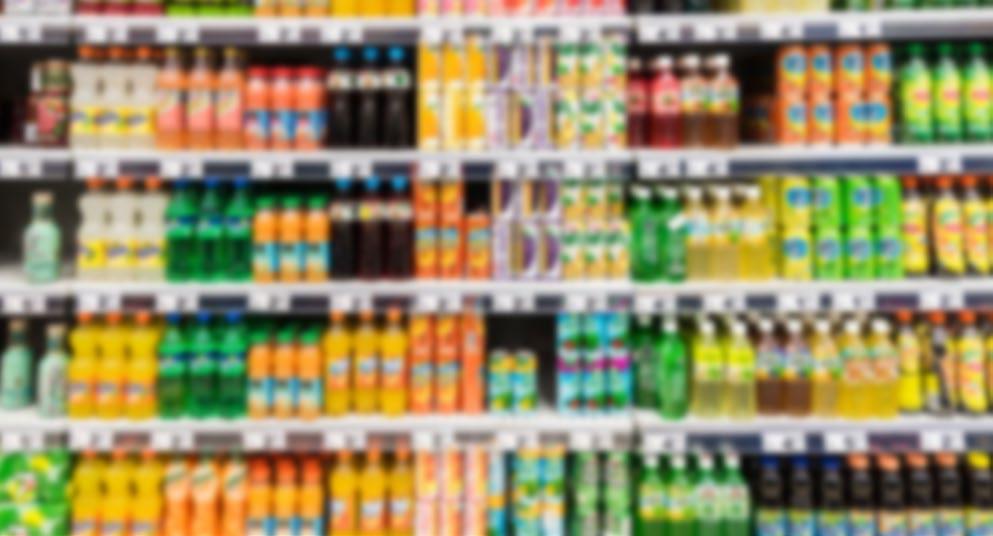
lost through fobbing – taking the consumer’s CO₂ experience down to about 6.2g/litre. This is the tipping point for most manufacturers, based on meticulous consumer testing: below that level, the beverage is considered unacceptable.
However, adding CO₂Sustain can allow the CO₂ to drop to 5.6g/litre with no discernible effect on the consumer experience. This saves 0.6g of CO₂ per litre – and with a known loss of around 0.1g per week, this permits an additional 4 weeks of shelf time before the consumer would find the beverage unpalatable. Extending the current average 16-week shelf life to 20 weeks.
→ Can extend CSD shelf life by around 4 weeks
Reduces the amount of CO₂ required, which reduces transportation miles
Supports manufacturers in preparing for peak demand periods
Smooths production, leading to production energy savings
Supports retailers in storing stocks for longer
Reduces the transport of returns by retailers
Less waste goes to landfill
Less water is wasted
Certainty of supply protects relationships and agreements with retailers
Protects consumer relationships by delivering the optimum brand experience for longer.
CO2Sustain enables CSD containers to be filled more rapidly and cleanly on the filling line, cutting energy requirements even at temperatures of up to 18�C.
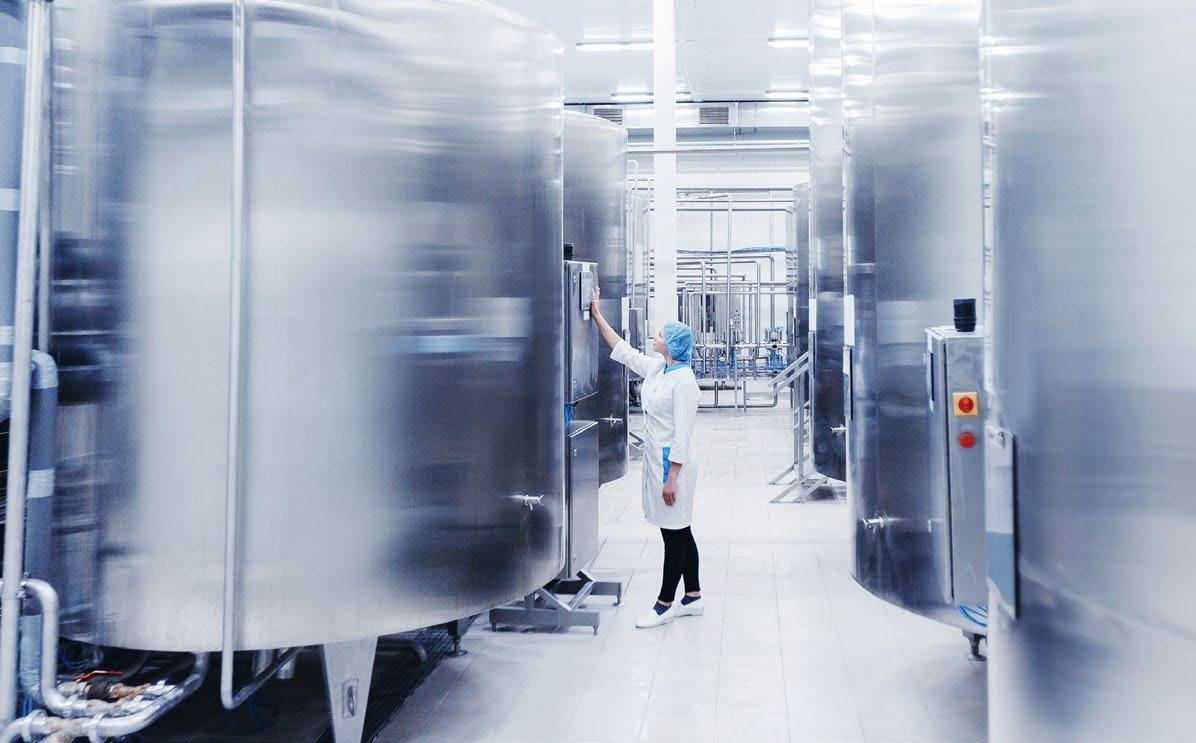
Adding 0.1g of CO2Sustain per litre of carbonated beverage reduces fobbing during filling, even at higher temperatures. This permits filling lines to start up and run more rapidly, decreasing the amount of time that lines must run and therefore reducing power requirements. Additionally, the ability to run lines ‘warmer’ cuts the amount of energy needed for cooling.
While energy savings are contingent upon the quality of the filling line and the environmental temperature, significant savings are possible with CO 2Sustain.
Filling lines typically run 15% faster, with some manufacturers reporting over 25% increase in speed.
Faster filling can lead to potential reductions in the number of lines required, the need for line extensions, and even the number of factories required – with knock-on environmental benefits including less construction and transportation.
Faster, cheaper filling can release capacity for manufacturing more sustainable beverage innovations, such as new diet or uncarbonated drinks, or for arrangements to fill on behalf of third parties – thus helping to centralise production, release economies of scale, and reduce the overall number of plants required.
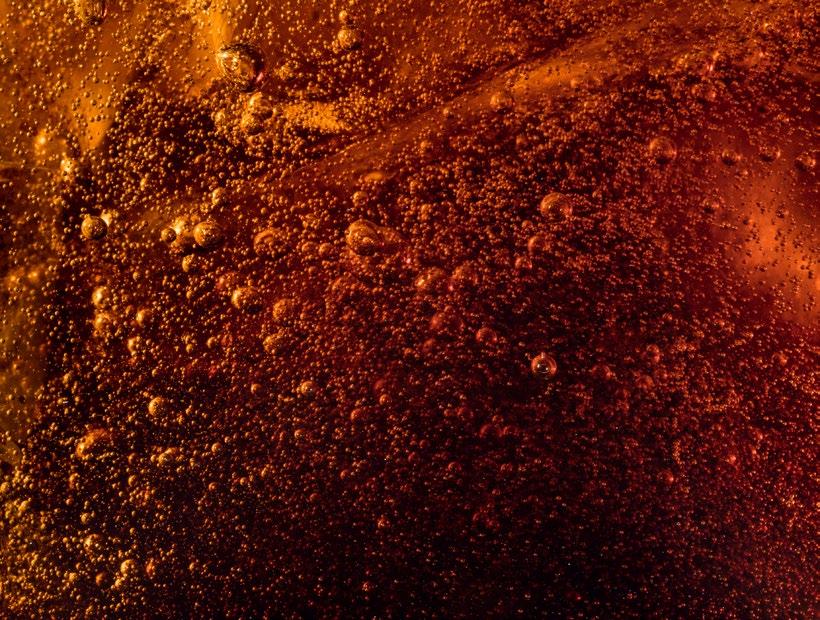
While the environmental cost of transporting raw materials, packaging and wastage for the CSD industry is not inconsequential, it is the finished product which has the greatest environmental impact. Carbonated beverages contain between 85% and 99% water – and water is heavy. Transporting ready-mixed drinks requires significantly amounts of fossil fuels and generates large quantities of emissions.
However, CO₂Sustain can be added to syrups for use in point-of-sale dispensing systems, an environmentally friendly option which can cut transport-related energy requirements and CO₂ emissions. As a halo effect CO₂Sustain can also thereby cut the transportation involved in packaging, waste, recycling and landfill.
In particular, since CO₂Sustain allows CSDs to use around 12.5% less CO₂, this also cuts the environmental costs of transporting that CO₂ by a commensurate amount – which is especially helpful at a time when CO₂ is in short supply.
12.5% less CO₂
→
cuts transport
12.5% less CO₂
waste, recycling
landfill
Furthermore, CO₂Sustain can be added to point-of-sale dispensing concentrates, where the beverage is cooled directly at the tap. This removes the need for energy-intensive bottle coolers – which represent an overwhelming 70% of the total refrigeration carbon footprint of the soft drinks supply chain.

The most energy-intensive aspect of beverage production is refrigeration – that is to say, cool rooms, air conditioning, bottling lines and conveyors. As a result, manufacturers are aware that even small percentage savings on production energy can mount up to significant financial and sustainability advantages.
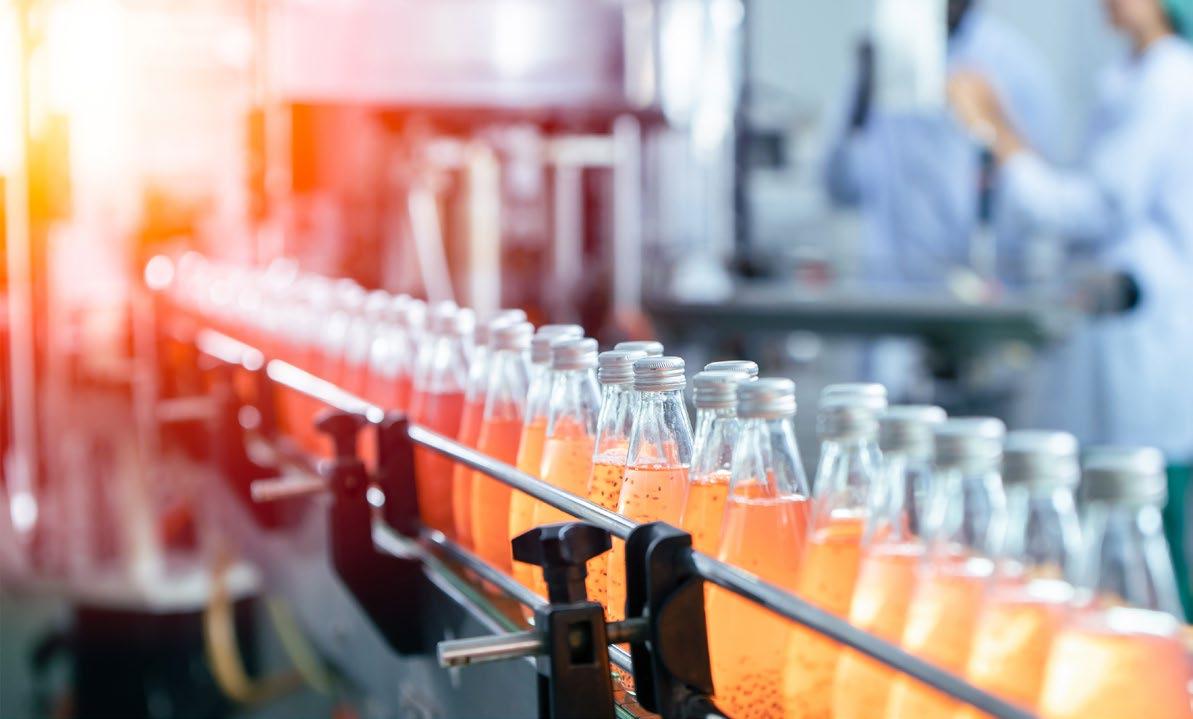

According to the Birmingham Energy Institute, “The cooling industry is incredibly polluting, accounting for around 10% of global CO₂ emissions. That is three times the amount produced by aviation and shipping combined.” 11 Legacy refrigerant gases also have a global warming potential which is hundreds of times greater than CO₂; further impacts include the disposal of lubricating oil and refrigeration equipment.
CO₂Sustain offers sustainability benefits when it comes to refrigeration during both production and point of delivery.
The vast majority of CSDs require chilling before bottling. However, CO₂Sustain permits CSD manufacturers to consume less energy since it permits rapid production-line filling, without fobbing, even at temperatures of up to 18�C. After filling and during storage, it continues to function equally well at ambient temperatures.
taste tests are
you’ve been
your own taste test

method
works best
that
up to
demands-for-sustainability/
climate-change.html
climate-change.html.html
climate-change.html.html
environmental-impact-in-your-basket/
massive-plastic-pollution-footprint-of-drinks-firms
billions-plastic-bottles
